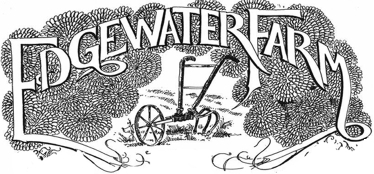The other day,while working in the greenhouse, I was listening to a show called Vermont Edition on Vermont Public Radio. The discussion was gun control legislation, a topic I am only mildly interested. But the anti gun legislation proponent’s argument made my ears dial in. His point was that there are federal laws on the books that deal with gun registration through the Bureau of Alcohol and Tobacco and Vermont, by creating another bureaucracy to duplicate the process was expensive and wouldn’t make anyone safer in the process.
To me, how you feel about gun control is irrelevant. But I am coming to a point in my life where I feel that there is an awful lot of duplicated bureaucracy around in my world. And I believe that it is unnecessary and costing me—or all of us—a lot of money, time of aggravation.
Recently at our New Hampshire Vegetable and Berry Growers annual meeting, I listened to Kelly Connelly from the Federal Department of Labor, whom we had invited to speak to our trade group. She is a federal inpsector, and she is the person who would come to our farm if there was a labor or wage violation. Because many farms in the northeast use volunteers or interns on the farm, we wanted her to qualify the legality of the point. She said, on no uncertain terms, that if we were not a federally registered non profit, we had to pay all interns and volunteers at least minimum wage. Nor would the Fed DOL recognize any “payment in kind” arrangements like work swapped for room, or food. There was an exemption volunteer labor under a certain number of man hours, but it wasn’t enough to get a person through a normal growing season. I went and posted the info I took from the meeting on a couple of list serves so that it might clarify the DOL ‘s read on things to those farmers who might be impacted by it. There are many farms in Vermont and NH whose use of interns constitutes a significant portion of their farm labor. What I precipitated was a discussion about the confusion of what the state laws allow and what the federal laws allow, and needed clarification from both state and federal agencies. Do the feds trump the state laws? Who do we listen to?
The same thing is developing in food safety. Around 8 years ago USDA (US Department of Agriculture) developed a voluntary certification program called Good Agricultural Practices (GAP-for short) with a set of guidelines and documentation to follow for the production of food . Large wholesale buyers—like Hannaford or Price Chopper- could request GAP certification from their ag vendors (farms like Edgewater) in order to be able to sell to them. Here is a science based program already developed and in use…albeit a voluntary one. If you don’t want to get GAP certified, you don’t get to sell to Hannaford. Pretty simple..the choice is yours and their. and it is as strong step towards food safety that p[rotects both the buyer as well as the vendor.
Along comes the 2013 Food Safety and Modernization Act. Now, the FDA(Food and Drug Administration) wants to get into the act. They get busy, gather up a bunch of people in white coats, some people in suits and put them in a room in Washington and devise a set of guidelines for food production for farms without even visiting a farm. For that little oversight, they find out the cost of compliance to the initial set of rules would crush the development of a local food economy in the northeast. So after some congressional delegations chastise them, they agree to rewrite the rules and even visit a few farms (which now becomes a photo opportunity at places like Edgewater Farm). Now they have retired back to the confines of their Washington offices to see if they can do a little better. You might think that someone in the FDA would have the common sense to say “Hey guys, the USDA has this GAP program, and maybe we should look at it, see how it works and give them a call.” But Washington being Washington, and the FDA being the bureaucracy that it is, chooses to reinvent the wheel in the assumption that nobody else is as smart or diligent as they are when it comes to food safety. Ultimately what will happen is that there are some farms that will have to fulfill a food safety requirement from their buyers (GAP) as well as keep a separate set of books and documentation for the federally mandated program (FSMA).
I often jokingly say that “The new growth industry in America is federal bureaucracy” to my friends who want talk about investments. Truth is, I really believe that. Why FSMA and USDA GAP? Who is the primary person to answer to FED DOL or NH DOL? Where does NH Department of Environmental Sciences end and federal EPA begin?
The redundancy, in the end, makes nobody’s food,environment or work space any safer,more productive or easier. In our case bureaucratic redundancy makes our jobs here harder and our product dramatically more expensive.
